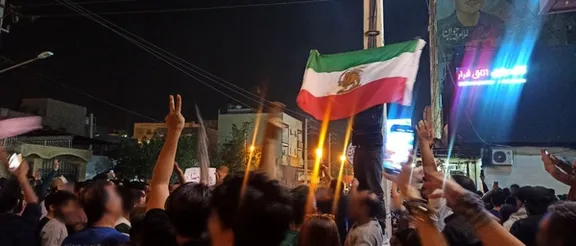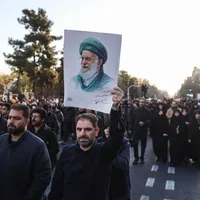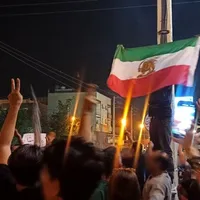While hardline media aligned with the establishment condemned the summit outright, reformist and moderate voices turned their criticism inward, questioning the government’s decision to boycott the meeting and the reasoning behind it.
Hardline daily Jam-e Jam, run by state broadcaster IRIB, headlined its front page “The Shameful Summit.”
The gathering, the daily wrote, was not a symbol of peace, but "a stage for diplomacy wearing a mask of empathy — while the same actors keep the fires of war burning.”
'Resistance miracle'
Javan, linked to the Revolutionary Guards (IRGC), was more bullish.
“Does anyone in the West truly believe they ‘won the war’ and can dictate postwar conditions?” the daily asked in an editorial. “The new order favors the Resistance Front and the Islamic Republic, to the detriment of Israel and Saudi Arabia.”
The ultra-conservative Kayhan, funded by the Supreme Leader’s office, had the answer to Javan’s rhetorical question.
“The Zionist regime failed to achieve any of its military goals and had to negotiate with Hamas,” Kayhan wrote under the front-page headline “The Miracle of Resistance.”
Hamshahri, run by Tehran’s municipality, backed Iran’s decision to decline Egypt’s invitation, calling it “an effort to rescue Netanyahu from the Gaza quagmire through negotiation with Hamas.”
Hardline commentator Mohammad Nadimi issued a harsh warning.
“Sharm el-Sheikh is the completion of the Arab-Israeli-American alliance for a new Middle East. Join it, and we give up the islands, missiles, enrichment and drones; refuse, and we must prepare for war to restore balance,” he posted on X.
‘Peace hanging in balance’
Tehran moderates offered a more restrained response — with the reformist daily Shargh splashing “Peace on a Razor’s Edge” on its Tuesday front page.
“Whether Iran views this ceasefire as an opportunity to consolidate influence or a temporary setback depends on Washington’s policy toward Tehran and its regional competition with Riyadh,” the paper’s editorial read.
Former presidential aide Mohammad Ali Abtahi highlighted the human loss in Gaza.
“Two years ago neither Hamas imagined accepting peace after 65,000 martyrs and Gaza’s destruction, nor Israel thought it would end up signing a peace deal with the group it calls terrorist,” he wrote on X.
Former ambassador Nosratollah Tajik questioned the efficacy of the summit.
“Trump’s speech at Sharm el-Sheikh, with no mention of the Palestinian people, shows he does not intend to address the roots of the conflict. Without a Palestinian state and refugee settlement, this is just another painkiller, not a cure.”
Isolation or Strength?
The government-run Iran daily defended the decision to skip the summit, calling it a “Trump spectacle” to compensate for not winning a Nobel Peace Prize.
Tehran’s refusal to be part of the show, the paper said, underscored its “independent role amid geopolitical rivalries and chronic mistrust.”
But the reformist Ham Mihan rebuked that logic.
“If that is the case, why did you seek meetings with them (the Americans) at the United Nations?” it asked in its Tuesday editorial. “Such reasoning may appear principled but isolates the country further and defines Iran as outside the existing world order.”
Political analyst Majid Younesian, writing in the same paper, urged realism.
“Declining Egypt’s invitation is neither a waste of diplomatic opportunity nor a trap. The truth is that Iran’s state apparatus is still not ready to alter its approach toward engagement with the West,” he wrote.






